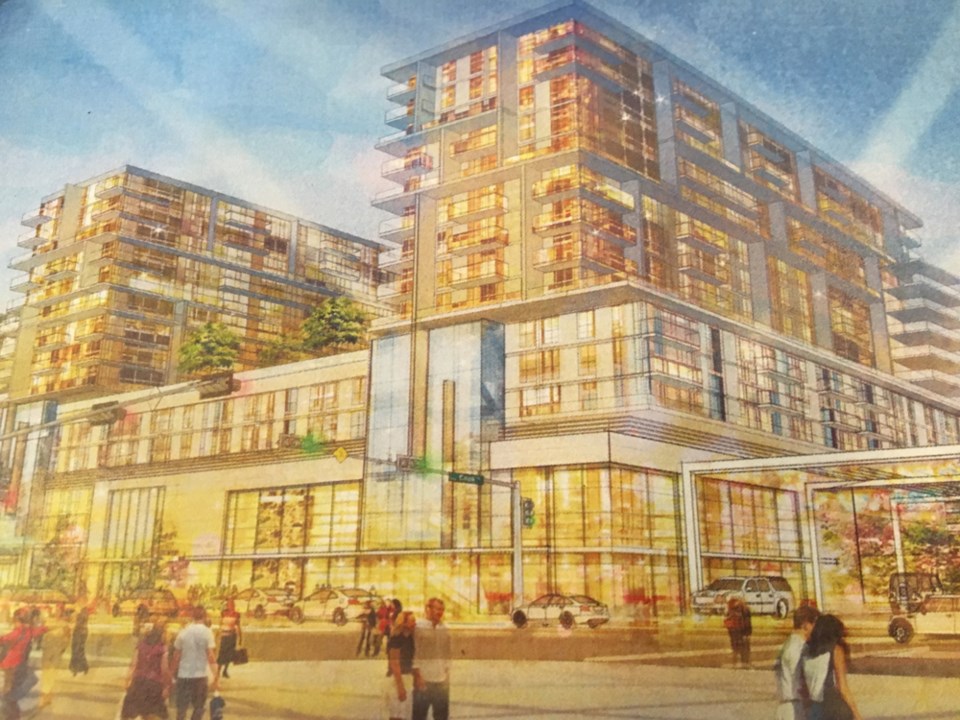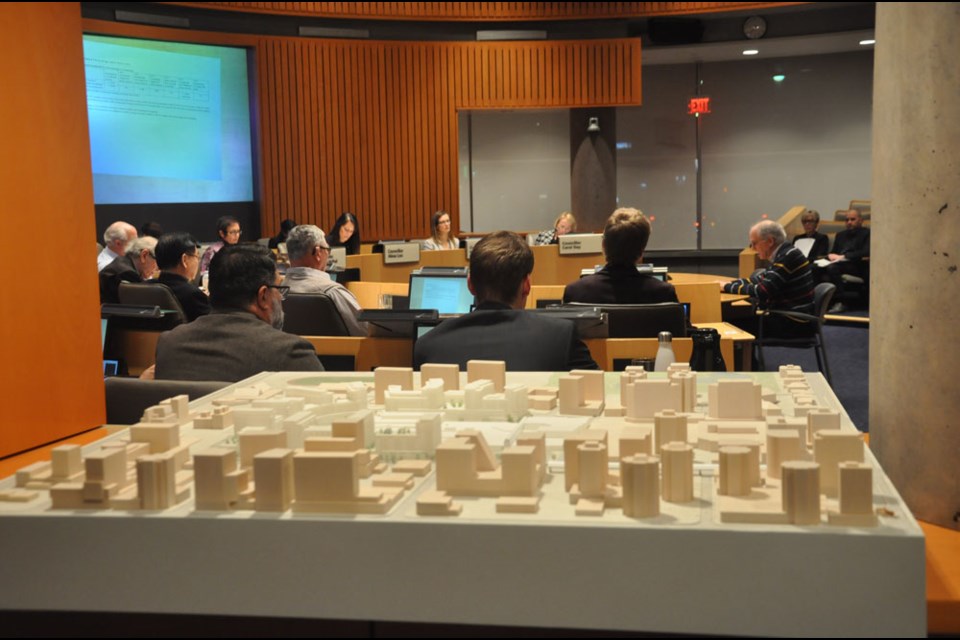A majority of Richmond councillors agreed to look into having 200 market rental units in the Richmond Centre redevelopment project, which is 10 per cent of the total number of units and is double from what is proposed by the developer.
Coun. Harold Steves put forward the proposal and all other councillors, except Alexa Loo, voted in favour of it at Monday’s public hearing. Staff will present the application, with updated information, at the next public hearing regarding the development on Dec. 17.
The Richmond Centre South Redevelopment Plan will add 2,100 new dwellings in roughly a dozen new towers between No. 3 Road and Minoru Boulevard. Developer GBL Architects has proposed including 100 market rental units and 150 affordable rental units in this project.
A number of residents spoke to council Monday night, saying the project is an opportunity to address Richmond’s housing crisis. Resident John Roston pressed council to set the quota for market rental units at about 50 per cent.
He noted that Richmond could make use of the new provincial legislation that gives municipalities the power to require a certain amount of market rental housing in new developments.
“You can decide how many rental units you want...Richmond citizens have voted in a new council that promised to do something for the housing crisis, and it is time to vote on that promise,” said Roston.
He said the development should include 1,000 market rental units – about half of the total number of units – and have 80 per cent of them as multi-bedroom family-friendly units. Currently, only 40 per cent of the market rental units have to be family friendly.
Coun. Michael Wolfe agreed that council should use the “new tool from the province" to ask for more market rental units.
“All of us who did the election campaign and listened to speakers know that this is not enough. We need more rental units; we can’t continue on the path we are on right now.”
De Whalen, chair of the Richmond Poverty Response Committee, asked council to "demonstrate the need to prioritize affordable housing over market purchase housing.
“The time is right. We have the provincial and federal government in line. It happened 40 years ago with co-op housing, and now we have another chance,” she said.

However, Loo said it is unfair to force new rules on an application that was put in three years ago and said that council should accept the deal offered by the developer.
“I love the idea of more rental...but I don’t think you can change the game this close to the finishing line,” said Loo.
“It’s a moving goal post. The developer came in knowing what the rules were at the time, and they were required to do more and more things when there were new requirements. This is a dangerous game we are playing,” she added.
This was echoed by Coun. Bill McNulty, who said the project had been delayed long enough and council should not “hammer one developer.
“I think we have a very good offer on the table... This will be a strong start for council to continue its vigilance to keep having more (market rental) units in Richmond.”
However, Coun. Kelly Greene said council has been so concerned about being fair to the developer, but “it needs to be fair to the people of Richmond, too.
“I’d like to see the options of having 25 or 50 per cent of market rental units, particularly for a development of that size," said Greene.
However, both Wolfe and Greene ultimately voted in favour of the 10 per cent quota.
Steves told the Richmond News after the meeting that he thinks 10 per cent of market rental units is a good number for this project.
“(Some people) might be disappointed by 10 per cent, but we've got a lot of development going on in the city centre, so we have lots of opportunities to increase the amount of housing,” said Steves.
"In the future, we might want 10 per cent each for the market rental units and affordable units in all the other developments coming along.”



